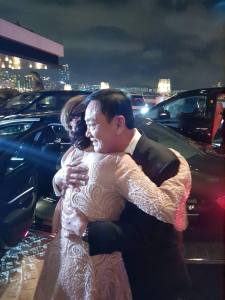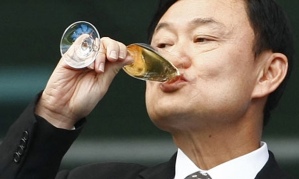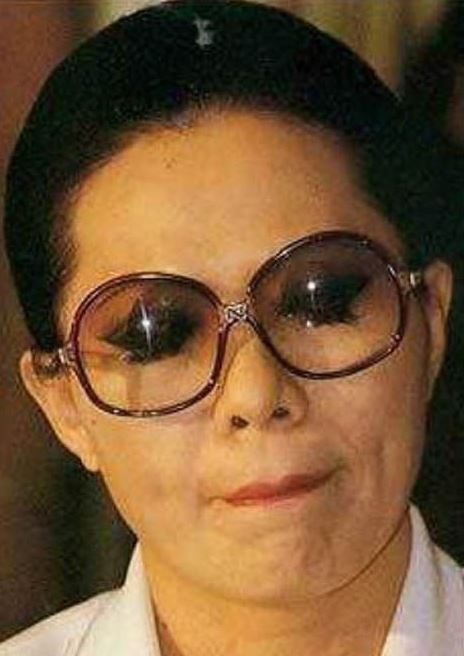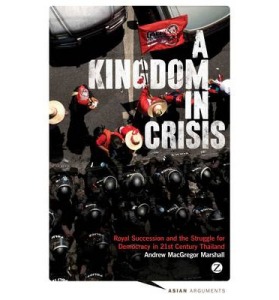Outgoing Deputy Prime Minister Wissanu Krea-ngam said on Wednesday he could neither confirm nor dismiss whether former prime minister Thaksin Shinawatra’s formal application for a royal pardon has been filed.
He could only confirm the application has yet to reach him, Mr Wissanu said in his capacity as caretaker justice minister.
Outgoing Deputy Prime Minister Wissanu Krea-ngam, in his capacity as the acting justice minister, says he has received an application for a royal pardon for Thaksin Shinawatra.
Speaking to reporters at Government House on Thursday, Mr Wissanu declined to say whether the former prime minister or his family had written the application. He said only that the application was for a pardon for an individual, as opposed to being part of a number of royal pardons and sentence reductions normally granted to mark certain spacial days.
Under the law, prisoners can submit a pardon application that is passed from the justice minister through the prime minister to the Privy Council before going to His Majesty the King.
Officials have said the process takes one to two months, if all the paperwork is in order.
The current caretaker government has only a few days left…. But it would not take long to process the application, said Mr Wissanu.
Asked to elaborate, he said: “It is purely based on royal grace. The procedure from the government is not long, but it depends on the length of (the king’s) consideration.”
King Vajiralongkorn has granted a royal pardon to the former Prime Minister Thaksin Shinawatra, resulting in a reduction of his prison sentence to one year.
The announcement … states that King Vajiralongkorn granted the pardon to enable Thaksin to “contribute his knowledge, expertise, and experience for the benefit of the nation, society, and the people.”
According to the announcement, the King made his decision based upon the pardon request submitted by Thaksin, which cited advanced age and health issues that require medical treatment from specialist doctors.
The request also stressed that during Thaksin’s tenure as a Prime Minister, he governed the country for the benefit of the nation and its citizens.It notes as well that Thaksin is loyal to the monarchy and that when legal proceedings were initiated, and the court issued the prison sentence, Thaksin respectfully accepted the sentence and expressed remorse.
The royal pardon was granted for sentences, cumulatively set at eight years in prison, from three cases that were handed down by the Supreme Court’s Criminal Division for Holders of Political Positions….
With credit for 10 days already served, Thaksin was facing a sentence of 7 years, 11 months, and 20 days in the special Bangkok Remand Prison before the pardon was granted.
Gen Prayuth Chan-ocha, as prime minister, countersigned the official announcement.
If there was ever any doubt about a deal being done between palace officials, the old regime, and Thaksin, that doubt is swept aside by this swift and special treatment for Thaksin. This is the deal that effectively smashed the election and tells voters they do not matter. Thaksin returns to the ruling class to defeat the people.
Of course, Thaksin and Vajiralongkorn have had a long and sometimes troubled relationship. A quick tour of Wikileaks reveals some of this and much of the rumor and gossip about it, as does a scan of The King Never Smiles by Paul Handley.
Here’s some of what Handley had to say back in 2006:
Few Thais, most of whom had never lived under any king but Bhumibol, could imagine the next reign, whoever the monarch. But at least one person was planning for it, and he showed just how ready some people were to abuse the royal image, and at the same time how risk-laden the prince’s elevation might be. That was telecommunications tycoon and politician Thaksin Shinawatra. Thaksin had parlayed his multibillion-dollar fortune into building a large political party and capturing the premiership in January 2001. He also insinuated himself into military and palace politics, getting dangerously close to Prince Vajiralongkorn….
 … Thaksin used his money to buy off the palace. Early in the 1990s, his generous donations reaped him entry into Queen Sirikit’s circle and closeness to Ubolrat, reportedly funding some of her daughter Ploypailin’s piano recitals. Rumors spread that he and Ubolrat were lovers. More calculatingly, Thaksin used his wealth to get close to the crown prince. At the end of the 1990s many well-informed Bangkokians talked of Thaksin having taken on many of the prince’s larger expenditures, including the refurbishment of the old palace of Rama VII, which the prince wanted to move into. Until then it had been entrusted to Princess Sirindhorn, but in giving it up to her brother she received instead the Srapathum Palace of Queen Sawang. That too was refurbished with Thaksin’s money, it was said.
… Thaksin used his money to buy off the palace. Early in the 1990s, his generous donations reaped him entry into Queen Sirikit’s circle and closeness to Ubolrat, reportedly funding some of her daughter Ploypailin’s piano recitals. Rumors spread that he and Ubolrat were lovers. More calculatingly, Thaksin used his wealth to get close to the crown prince. At the end of the 1990s many well-informed Bangkokians talked of Thaksin having taken on many of the prince’s larger expenditures, including the refurbishment of the old palace of Rama VII, which the prince wanted to move into. Until then it had been entrusted to Princess Sirindhorn, but in giving it up to her brother she received instead the Srapathum Palace of Queen Sawang. That too was refurbished with Thaksin’s money, it was said.
Thaksin also bailed out the CPB while buying himself media control. The only independent television station was the all-news cable channel ITV. ITV’s biggest financier and a key shareholder was Siam Commercial Bank, and palace public relations adviser Piya Malakul’s Pacific Communications also had a significant shareholding. The other major shareholder was the decidedly non-royalist Nation media group. After the devaluation and economic crash, ITV became insolvent. The Nation group offered to take it over completely, assuming the debts. Instead, in 2000, Siam Commercial Bank insisted on selling to Thaksin…. With little likelihood of ever recovering the investment, Thaksin was effectively bailing out the bank and the palace.
For a taste of Wikileaks, see a series of cables from 2007, March, September, October, and November 2009, 2010, and 2011.
Update 1: We should have pointed out that the the royal pardon was published on Friday but signed on Thursday, adding more to the conviction that this deal really had been in the works for a long time. PPT’s suspicion is that ISOC and other regime intelligence determined that Move Forward was more of an electoral threat than Thaksin’s party and that the long-awaited, much negotiated deal was concluded to “save” the ruling class from progressive politics.
Update 2: A reader asks about how the Thaksin deal will sit with ultra-royalists. We guess there will be some who will never much have liked the incumbent king and have always worried about his links to Thaksin. We suppose their negative perspective will be reinforced. However, royalists are now somewhat hamstrung about negative responses as it is crystal clear that the deal had the king’s approval. Opposing a royal pardon, once given, is difficult political and ideological terrain.










